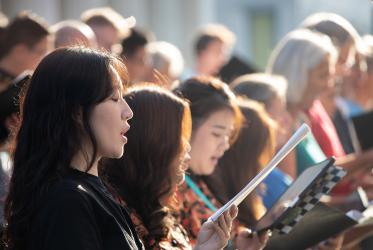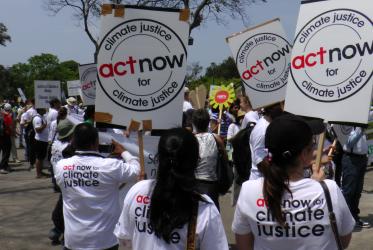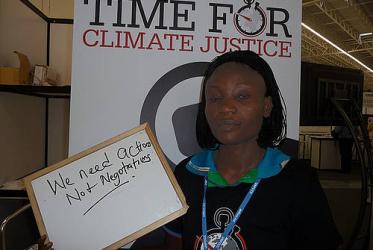Displaying 1 - 9 of 9
God’s Creation is celebrated in a gathering of waters
01 September 2022
Churches' “prophetic voice” will be busy in 2015
18 June 2015
Timid hope at end of climate negotiations in Cancun
13 December 2010





